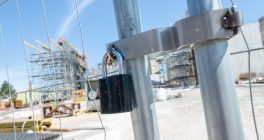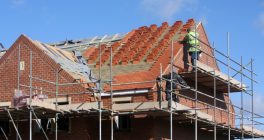UK construction output experienced its sharpest decline since the snow-related downturn in March 2018, according to the latest PMI.
Subdued domestic economic conditions led to project delays and fewer tender opportunities, construction firms reported.
The IHS Markit/CIPS UK Construction Purchasing Managers’ Index reading was 48.6 in May, down from 50.5 in April, against the no-change mark of 50. The latest reading was the lowest since unusually snowy conditions experienced in March 2018 impacted the UK construction sector.
Commercial building was the weakest area of construction activity for the month, and many firms reported clients had opted to hold back on major spending decisions in response to Brexit uncertainty and concerns about the economic outlook. Civil engineering activity was also in decline for the fourth consecutive month.
Residential work continued to expand but at a weaker pace than the past three months and not enough to offset lower volumes of commercial work and civil engineering activity.
Activity in purchasing construction materials declined and supply chain pressures persisted, resulting in lengthening lead times among vendors. Firms also reported shortages and low stock of some materials, particularly plasterboard.
Duncan Brock, group director at CIPS, said: “A fragile dreariness descended on the sector this month with lower workloads leading to the fastest decline in purchasing of construction materials since September 2017. With the continuing uncertainty around Brexit and instabilities in the UK economy, client indecision affected new orders, which fell at their fastest since March 2018 and particularly affected commercial activity.
“The previously unshakeable housing sector barely kept its head above water, growing at its weakest level since February as residential building started to lose momentum.”
Brock said an easing in some input costs for raw materials offered some relief to the sector, while energy and fuel prices continued to rise.
“This is unlikely to be nearly enough to turn around the sector’s fortunes, as optimism about the strength of the sector’s future was the lowest since October 2018,” he added.






